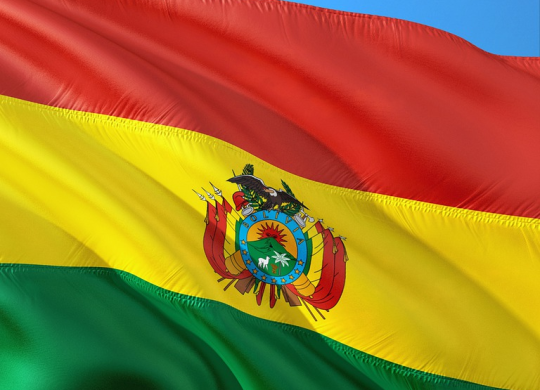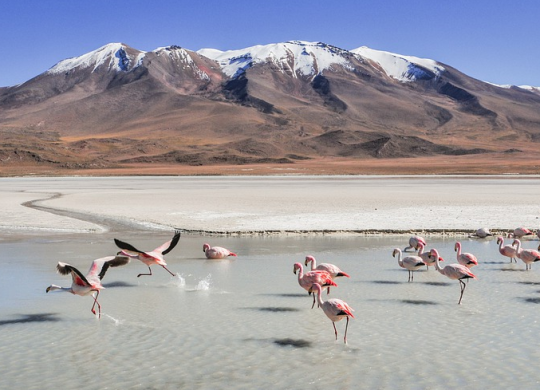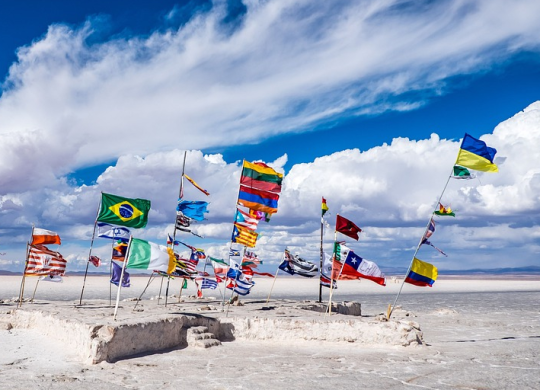How to get a job in Bolivia and what foreign workers should know

Bolivia's economy has been growing steadily in recent years. However, the country is still on the list of countries with below-average income levels. Yes, there are low salaries and a rather low standard of living. Nevertheless, working in Bolivia can be a great work experience, as well as a great opportunity to immerse yourself in the local culture, get to know the country, and travel to interesting places. On how to move to the country and start working abroad, as well as what prospects you can expect – further on in the material.
What you need to do to come to the country for work
Bolivia does not issue a usual work permit. Foreigners who plan to work in this country need a work visa, an employment contract, and a temporary residence permit. Therefore, it is best to take care of the job search in advance to move to an already available workplace. Job opportunities can be found both on job portals and job boards, as well as on the websites of companies operating in Bolivia. Below are some popular resources for finding work abroad:
• We Expats;
• Indeed;
• Linkedin;
• Go Abroad.
Once you have found a job and cleared everything with your employer, proceed with obtaining a work visa and collect the necessary documents. If you plan to work in the country for a short period, use a temporary or short-term residence visa, which is valid from 30 to 180 days. For a long-term stay, it is better to choose a long-term permit, which allows you to stay in the country for one to three years. The process of obtaining a visa can take between one and five months.
Once you arrive in Bolivia, you must apply for a temporary residence permit. Sometimes foreign workers arrive in the country with a short-term work visa, but then change their status through lawyers. If you are interested in the legal details related to obtaining a visa to Bolivia, employment, entry into the country, and onward stay, the qualified professionals on our website will be happy to assist you and provide you with all the necessary information.
Terms and conditions
To work legally in Bolivia, foreign workers must apply for a work visa, have an employment contract, and obtain a temporary residence permit locally. As the country is mainly spoken in Spanish, it is very important to have at least a basic knowledge of the language. If you plan to work as a full-time employee, language skills are a must. In addition, knowing Spanish will greatly increase your chances of securing a more promising position and a higher salary.
We also advise you to take out medical insurance before you travel. Choose the insurance plan that best suits your needs. For this reason, it is advisable to contact only proven professionals who will competently select the type of insurance that fits your situation.
Documents required
To apply for a work visa to Bolivia, you will need to provide the following documents:
• a completed and signed form;
• a foreign passport valid for at least six months;
• yellow fever vaccination certificate (especially if your workplace is in a high-risk area);
• proof of employment (invitation from the company, employment contract, etc.);
• police file issued by Interpol;
• criminal record certificate;
• medical references;
• passport color photograph.
Other documents may be required at the embassy. Remember to ask about all visa requirements and the complete package of documents before applying.
Taxes
In Bolivia, all residents who work in the country pay an income tax of 13%. Salaries, wages, bonuses, and premiums are taxable. Exceptions may include the salaries of diplomats and foreign workers.
Job prospects
If you decided to work in Bolivia, the best cities and provinces to work in would be:
• Santa Cruz;
• Cochabamba;
• La Paz;
• Sucre;
• Oruro;
• Tarija;
• Potosí;
• Sacaba;
• Montero;
• Quillacollo.
The most developed industries are mining, forestry, and agriculture. Bolivia is also widely involved in manufacturing and industry: textiles, clothing, food, beverages, and tobacco.
The following fields of work are also popular:
• Banking and finance;
• Hospitality industry business;
• Management;
• Healthcare;
• Education;
• Tourism.
Salesmen, waiters, administrators, and office workers are often in demand in the country.
Earnings in Bolivia are low. The level of income will depend on qualifications, position, work experience, professional and personal skills, as well as language proficiency. For example, bank employees and civil servants in government agencies typically earn an average of US$300-500 per month. Managers receive around USD 500-1000 per month. More skilled professionals can expect higher incomes, especially in multinational companies.
Recommended articles
3 min
Popular
Top 8 countries with the best work-life balance in 2024
Moving abroad is an important step for every expat. Especially if the purpose of the change of residence is work. And for most, the most important thing when choosing a suitable location is the balance between work and personal life. We are talking about the rating of countries where you will have a good job and a lot of free time.
30 Apr. 2024
More details3 min
Work
4 min
Treatment
4 min
Residence permit
All materials and articles are owned by VisitWorld.Today and are protected by international intellectual property regulations. When using materials, approval from VisitWorld.Today is required.